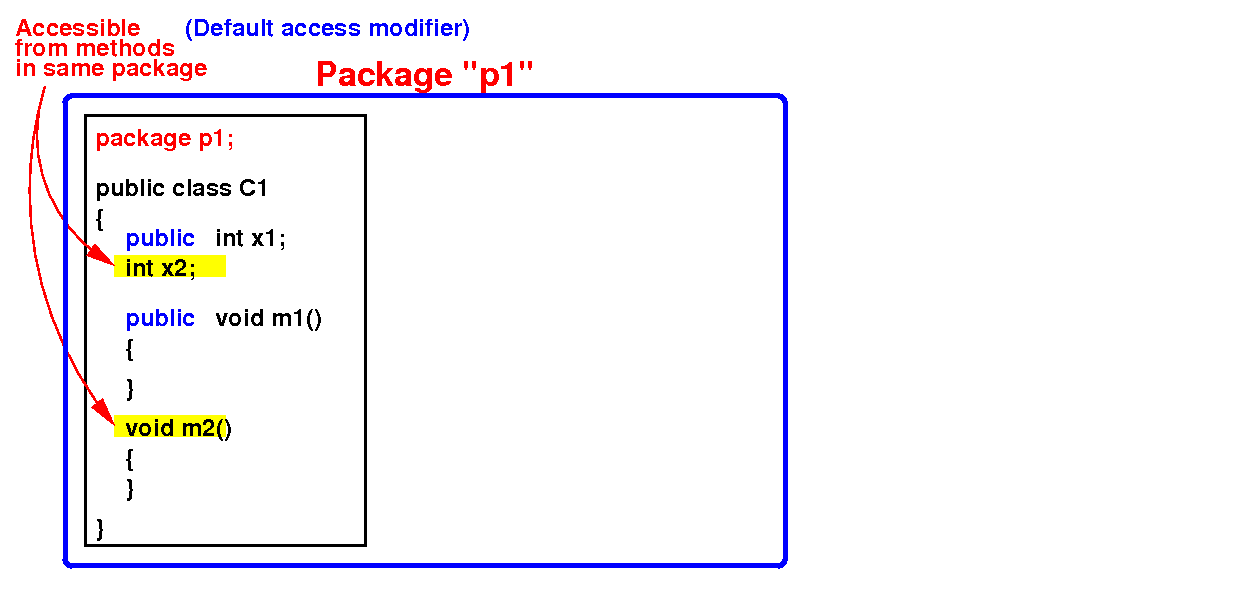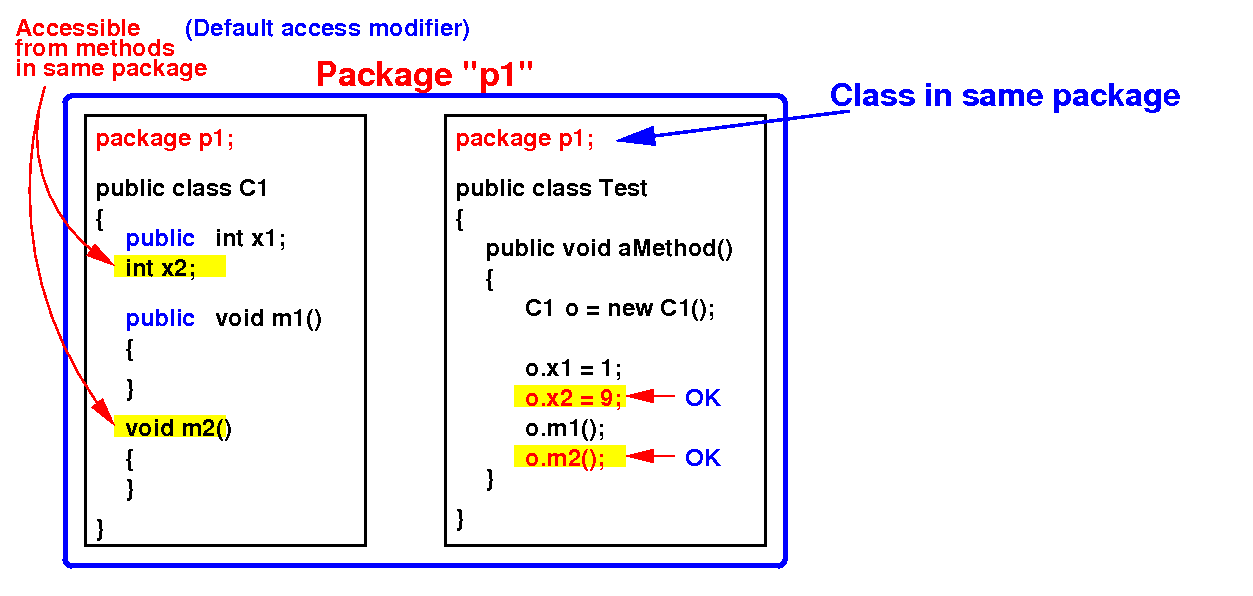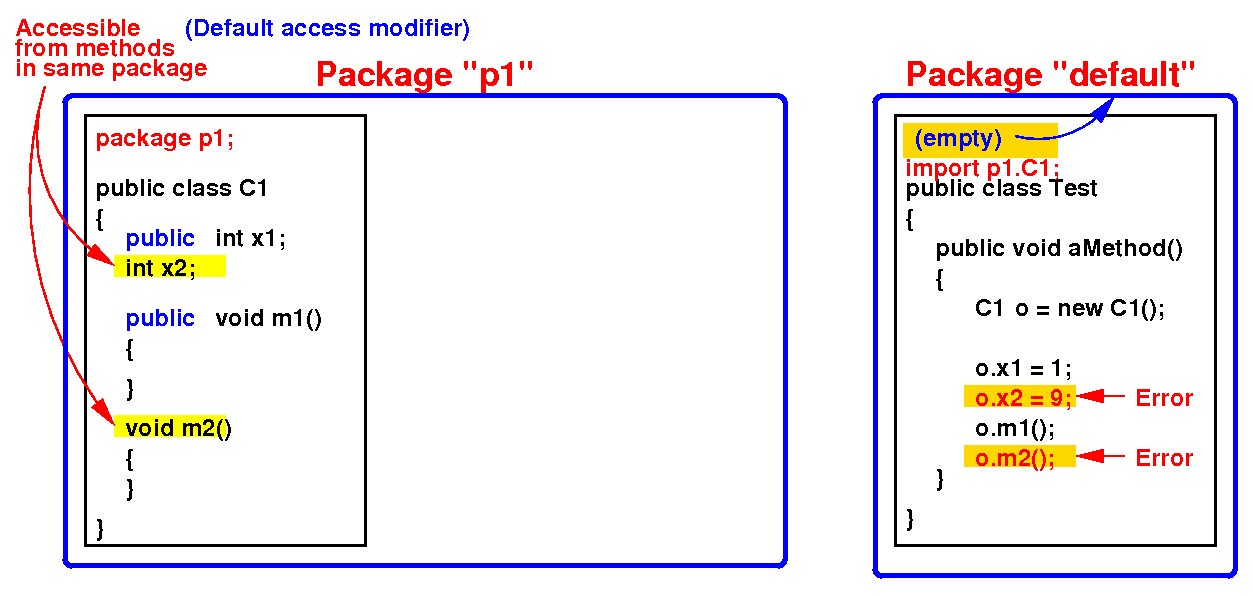Class members and their
"visibility"
- Review:
- Class member =
a variable or
a method defined
in a class
public class MyClass
{
private int x; // class member
public int get() { ... } // class member
}
|
|
- Visibility modifiers can be
used to
specify the
visibility
(I like to called it
accessibility) of a
class and its
members
- The visibility (accessibility) modifiers
of Java are:
Already discussed:
public: accessible from any class
private: accessible from methods in same class
New:
[empty]: accessible from methods in same package
protected: will be discussed later
|
|
The effect of
public and
private
visibility (access) qualifiers
private members
can not be accessed from
outside the
class:
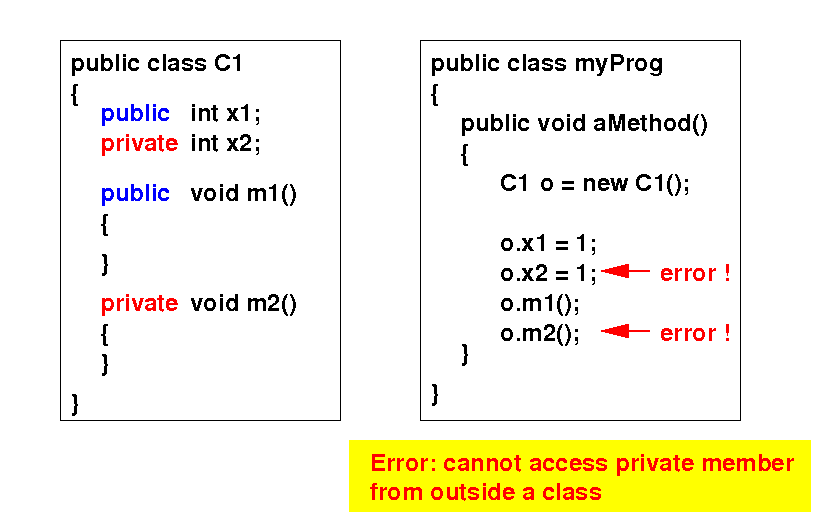
The effect of
public and
private
visibility (access) qualifiers
private members
can not be accessed from
outside the
class:
demo program
public class C1
{
public int x1;
private int x2;
public void m1() {}
private void m2() {}
}
public class myProg
{
public static void main(String[] args)
{
C1 o = new C1(); // Make a C1 object
o.x1 = 1; // Access a public variable
o.x2 = 1; // Access a private variable compile error
o.m1(); // Invokes a public method
o.m2(); // Invokes a private method compile error
}
}
|
DEMO:
demo/03-classes/17-private
(too easy, don't show..., compile it yourself.)
Why
do programming languages provide
different accessibilities
- A large computer program has
many
methods stored in
different
classes
- Methods defined
inside a class
are used to solve the
same problem
- Methods defined
inside different classes
usually do
not
solve the
same problem
- A common cause for
errors is
accidental update
of variable(s) by a
method in
a different class:
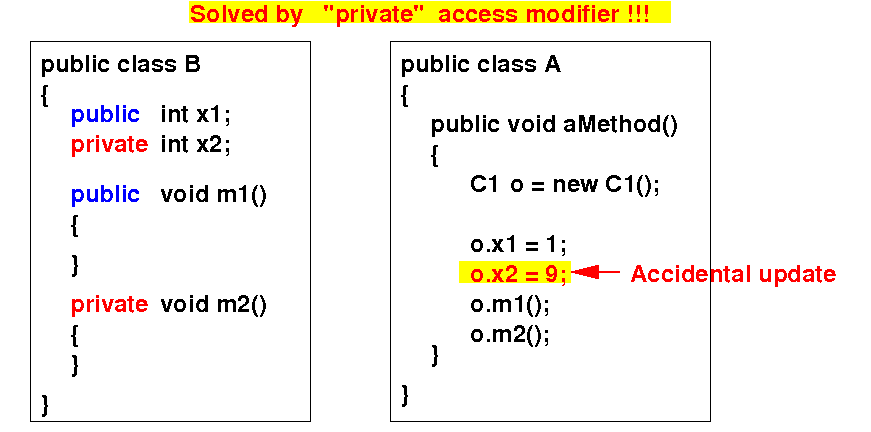
-
Limiting access to
variables
(with
private) will
reduce
accidental update
of variable(s)
by a
method from
another class !!!
|
Java packages
- Some problems are
too complex
that
they cannot be solved
by methods inside
one single class
- We may need to write
multiple classes
to
solve such
complex problems
-
Package in
Java is
used to
organize multiple classes
that coorperate
and perform
similar tasks
- The facilitate (= make it easier)
the coorperation:
-
Java can
allow
methods defined in
classes
inside
the same package to
access each others
members (variables and methods)
directly
|
- Before we learn
this accessibility modifier,
I need to explain
how to
create
packages in
Java
(with BleuJ)....
|
How to create a package in BlueJ
How to create a
class
inside a
package p1 in BlueJ
Example of a class inside the
package p1
Use BlueJ and
create this
new class inside
package p1:
package p1; // Inserted by BlueJ !
public class C1
{
public int x1;
int x2; // Default (= package) access modifier
private int x3;
public void m1() {}
void m2() {} // Default (= package) access modifier
private void m3() {}
}
|
The members
x2 and
m2() has
no access modifier
In that case, they will be assigned with
the
default access modifier
The
default access modifier
The
default access modifier
DEMO:
demo/03-classes/18-package/p1/Demo.java
+ C1.java
(use javac -cp ..)
The
default access modifier
DEMO:
demo/03-classes/18-package/Demo.java
+ p1/C1.java
Summary
Members with the
default access modifier can
be accessed from
methods in
classes inside the
same package:
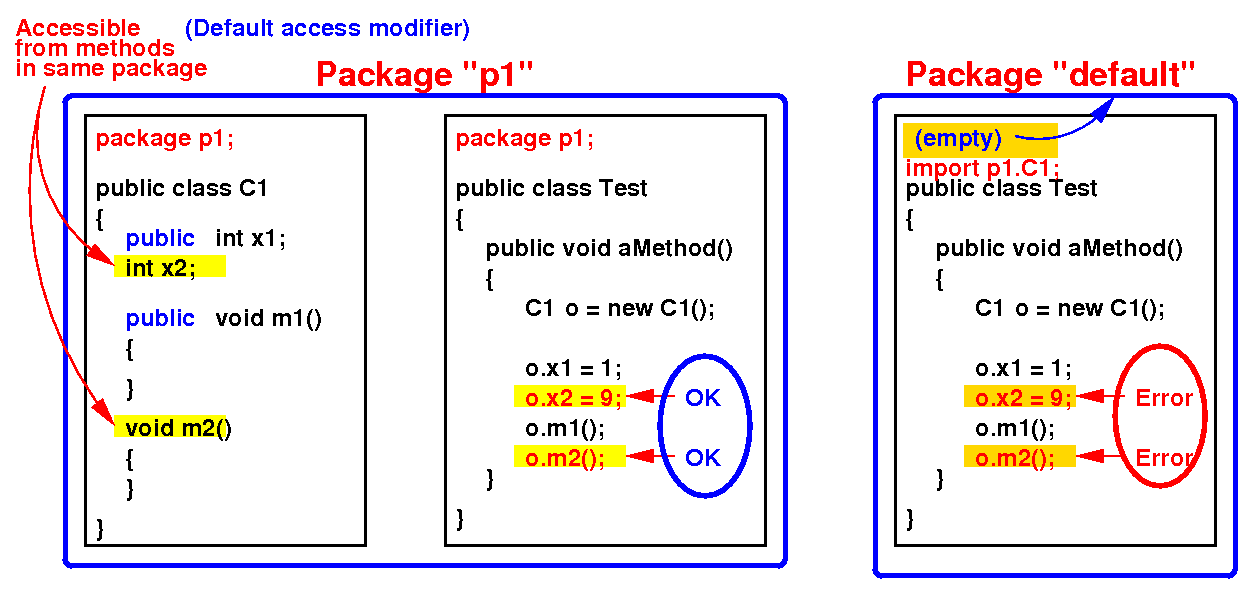
❮
❯



